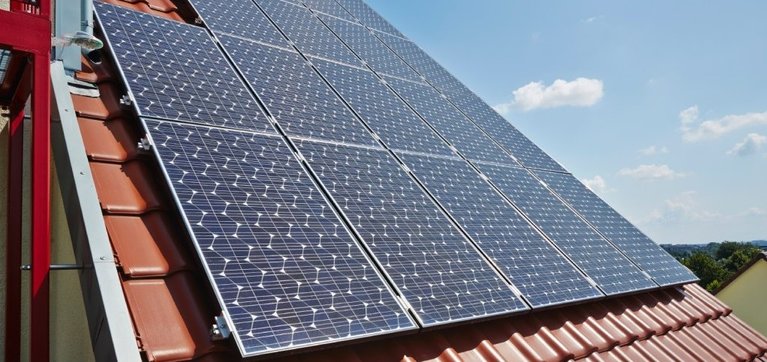A recent GOGLA report says that the Indian distributed renewable energy market is heading towards hybridization, i.e., the emergence of hybrid solar systems that can integrate DC solar with AC grid power supplies and can power AC and DC appliances.
The trend is fuelled by the growing aspiration and consumer demand for uninterrupted power as almost all households in India today have access to the main AC grid.
Both existing and new market players are serving this growing need by providing hybrid AC-DC (HAD) power solutions. Along with this, HAD appliances (appliances with dual input or battery integrated appliances) are also gaining the attention of established OEMs and new startups, the report added.
The report highlights hybrid solar inverter UPS and hybrid grid-tie inverter as two key HAD power solutions with great potential.
Hybrid solar inverter UPS allows the load to run directly on solar (using a charge controller) and charge the battery when it is not fully charged. This feature enables consumers to save on grid electricity bills for regular consumption.
The grid-tied variant, i.e., the hybrid grid-tied solar inverter, also supports the export of power to the main grid. Thus, the customer can opt for a net-metering facility, if applicable, from the Discom. The report expects hybrid grid-tied solar inverters to become popular in residential rooftops and also in micro-grids.
According to the report, many of India’s established UPS players, such as Luminous, Microtek, and V-guard, have already launched hybrid solar inverter UPS solutions. The hybrid grid-tied inverter market, on the other hand, is in its nascent stages, with only a few players such as Enertech, Statcon Energia, Sofar and Solax catering to the market.
Market penetration
The report said the hybrid solar inverter UPS systems market is currently 10% of the conventional inverter market. In 2019, 0.8 million hybrid solar inverter UPS systems were sold in India against around 8 million traditional inverters sold annually.
However, the hybrid solar inverter UPS industry is growing much faster at a rate of 25% annually compared to the conventional inverter’s annual market growth of 10%.
The report recommends a hybrid grid-tied inverter system for customers looking for back-up power due to frequent power cuts. These inverters have both on-grid and off-grid (only if the battery is available) capabilities, allowing them to continue running on solar power even in case of grid failure.
Challenges and recommendations
The report said the market adoption of HAD appliances with dual input is still limited due to challenges like high upfront equipment cost (hybrid inverters generally cost 20-30% higher than conventional inverters), high sales effort and low customer awareness, and lack of standardization.
It suggests OEMs define their go-to-market strategy and modify their product designs to tap the potential HAD market. At the same time, the Government should provide policy/regulatory support to the industry by providing rural subsidies, developing standards, and promoting HAD power solutions/appliances under existing schemes.
To promote the HAD eco-system in India, the report recommends power solution providers to focus on the solarization of conventional UPS inverters (as 10% of the inverter market has already moved to hybrid solar UPS systems) and upgrade conventional inverter design to provide a DC output.
Appliance OEMs should add a DC input as an option to provide flexibility to the end user. They can start promoting appliances with a DC interface, forcing conventional inverter manufacturers to add a DC output line, the report added.
This content is protected by copyright and may not be reused. If you want to cooperate with us and would like to reuse some of our content, please contact: editors@pv-magazine.com.









3 comments
By submitting this form you agree to pv magazine using your data for the purposes of publishing your comment.
Your personal data will only be disclosed or otherwise transmitted to third parties for the purposes of spam filtering or if this is necessary for technical maintenance of the website. Any other transfer to third parties will not take place unless this is justified on the basis of applicable data protection regulations or if pv magazine is legally obliged to do so.
You may revoke this consent at any time with effect for the future, in which case your personal data will be deleted immediately. Otherwise, your data will be deleted if pv magazine has processed your request or the purpose of data storage is fulfilled.
Further information on data privacy can be found in our Data Protection Policy.